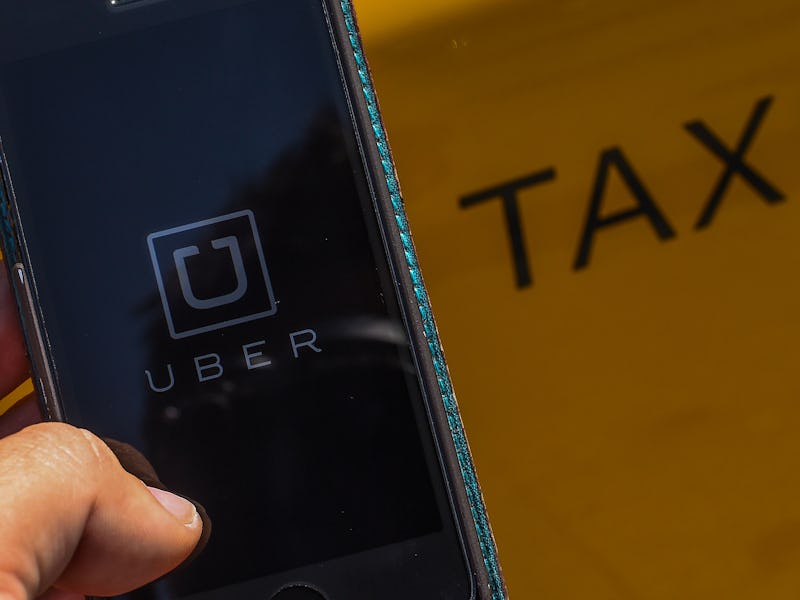Uber Beats Cabs, Takes on Public Transportation
A study proves it beats cabs in low-income areas, too.

Founded as an alternative to black car service, Uber originally had a decidedly aristocratic pitch. It’s official slogan, after all, was and is “Everyone’s private driver.” But, as many disgruntled “independent contractors” behind the wheel would point out, the company has begun to focus more on everyone than on the private drivers. And, now, we have proof.
BOTEC Analysis Corporation, funded by Uber, ran a study pitting taxis vs. UberX in low-income Los Angeles neighborhoods. Here’s the summary of what BOTEC found:
Compared to taxis, Uber is faster and cheaper by a large measure. Data collected in this study shows that an app-summoned UberX ride arrives in less than half the time of a telephone-dispatched taxi and costs less than half as much, even during periods of “surge pricing.” UberX was also more reliable, with no wait time exceeding 30 minutes.
It’s healthy to take the study with a grain of salt because it was paid for by Uber, but riders didn’t know that and BOTEC designed its approach well, fashioning a “drag race” comparison with two people — one waiting for a taxi, another for an UberX — leaving from and heading to the same places. Uber could have, one supposes, manipulated the results by repositioning drivers, but they couldn’t have messed with the cabs.
And it’s not surprising that Uber crushed it — the company has built its entire model on making taxis look like the Flintstones’ car. Take this stat, for example: On the second study day, the average UberX total wait time was seven minutes and 24 seconds, and the average taxi wait time was 21 minutes and 29 seconds. That’s massive.
What’s even more intriguing, here, are the implications for impoverished communities. “The study restricted data collection to low-income areas, defined as those in which the average household income is below $50,000 per year for a family of three,” BOTEC reports.
The real-world effect is light-years away from spoiled post-collegiates complaining about surge pricing on a rainy Saturday night at the bar. Rather, there’s opportunity for people without cars or access to reliable public transportation to get out of the house — for work, picking up kids, going grocery shopping, or cruising around the neighborhood while laughing at people in taxis.